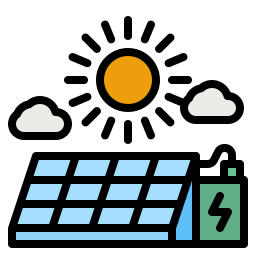Capture Sunlight
Capturing sunlight refers to the process by which solar panels absorb sunlight and convert its energy into electricity. Solar panels are made up of photovoltaic cells, typically composed of semiconductor materials such as silicon.
Capturing sunlight refers to the process by which solar panels absorb sunlight and convert its energy into electricity. Solar panels are made up of photovoltaic cells, typically composed of semiconductor materials such as silicon.

The electricity generated by solar panels, which is in the form of direct current (DC), undergoes a conversion process to become usable alternating current (AC) electricity. This conversion is facilitated by an inverter, a crucial component of solar power systems.

The electricity generated by solar panels can be used to power various devices and appliances within homes, businesses, or other settings. Once converted into usable alternating current (AC) electricity, this power can directly supply energy to electrical systems, providing electricity for lighting, heating, cooling, electronics, appliances, and other electrical devices.

Measuring the uses and production of solar energy involves several methods to track energy consumption and generation from solar panels: Energy Metering, Solar Production Metering, Monitoring Systems, Net Metering and Energy Bills.

Solar energy systems often have mechanisms to manage excess electricity generated: Battery Storage, Grid Connection, Smart Inverters and Load Control Systems. Battery storage offers greater energy independence, while sending surplus energy to the grid provides financial benefits in grid-connected systems.
